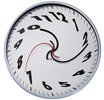In The News: Inexpensive Solar Heater Can Help Bring Hot Water to Third World
 Creating technologies that are affordable and practical is not so simple, but they can make a huge impact on people's lives. Instead of calling on complex solutions for low-tech problems, some researchers are now developing what they call "confluent" technologies. For example, Ashok Gadgil, with Berkeley Lab’s Environmental Energy Technologies Division, has created a a solar heater that costs $100 and can produce 26 gallons of water warmed to 104 degrees Fahrenheit by 4 p.m. each day, enough for four showers. More>
Creating technologies that are affordable and practical is not so simple, but they can make a huge impact on people's lives. Instead of calling on complex solutions for low-tech problems, some researchers are now developing what they call "confluent" technologies. For example, Ashok Gadgil, with Berkeley Lab’s Environmental Energy Technologies Division, has created a a solar heater that costs $100 and can produce 26 gallons of water warmed to 104 degrees Fahrenheit by 4 p.m. each day, enough for four showers. More>
 In The News: U.S. Wind Power Market Surpasses Expectations
In The News: U.S. Wind Power Market Surpasses Expectations
Surpassing even optimistic projections from years past, the U.S. wind industry experienced unprecedented growth in 2007. Mark Bolinger and Ryan Wiser — with Berkeley Lab’s Environmental Energy Technologies Division — present highlights from the Department of Energy's second Annual Report on U.S. Wind Power Installation, Cost, and Performance Trends — a comprehensive yet detailed overview of key developments. The rapid pace of development has made it difficult to keep up with trends in the marketplace, say Bolinger and Wiser. More>
 In The News: RNA Ruler to Measure the Asymmetry of Time
In The News: RNA Ruler to Measure the Asymmetry of Time
Although humans have an intuitive sense of past, present, and future, all the fundamental theories of physics are symmetric with respect to time reversal except for one: the Second Law of Thermodynamics asserts that the entropy of the universe increases as time flows toward the future, providing an arrow of time. Gavin Crooks of the Lab's Physical Biosciences Division and colleague Edward Feng of UC Berkeley have developed a method of accurately measuring “time asymmetry” based on the folding and unfolding of RNA. More>
 People: Flamenco Indulges the 'Feel' Part of Physicists Life
People: Flamenco Indulges the 'Feel' Part of Physicists Life
From the chilly climes of the South Pole to the heat and passion of flamenco. These extremes are normal for Azriel Goldschmidt, a physicist with Nuclear Sciences Division. As part of his job, he works on the IceCube telescope, which was constructed in the frigid South Pole to study neutrinos. Goldschmidt describes this as the “think” part of his life. Flamenco singing and dancing with his performance group constitutes the “feel” portion. More>
 People: New Special Assistant to Deputy Director Alivisatos Hired
People: New Special Assistant to Deputy Director Alivisatos Hired
Chris Yetter has been recently hired to serve as Special Assistant to Deputy Lab Director Paul Alivisatos. In that role, he will work closely with Alivisatos on a variety of daily activities, long-range planning, policy development, and operational projects. Yetter is from the south Puget Sound region of Washington State and enjoys sailing and skiing in his spare time. Prior to joining the Lab, he was Policy Advisor to the Under Secretary for Science at the Department of Energy. A graduate of Georgetown University, Yetter earned a degree in Science and Technology in International Affairs.
Fiscal Close: Deadlines, Guidelines, Website To Assist Administrators
With the end of the fiscal year only a few weeks away, Divisions finance and business management staff are working hard to meet the FY08 fiscal close deadlines. In addition to communications aimed at the finance and business community-such as targeted e-mails, details on the BLIS and IRIS portals, a regular column in TABL will note important fiscal close dates and deliverables. Go here for important dates, or visit the Lab’s “Year-End-Close Wiki” to obtain a detailed close schedule, forms, policies, contacts, and other useful information.
